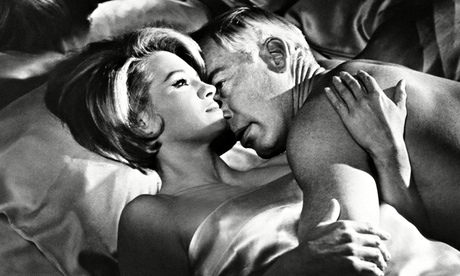
Hemingway's 1927 story The Killers is set one evening in a Chicago diner where two hitmen arrive to kill a washed-up boxer, Ole Andreson, who dines there regularly. This night he doesn't show, but when informed of their visit reveals neither surprise nor any intention of running. It's a lean, ironic, funny tale of fate, confronting death and grace under pressure that inspired Edward Hopper's painting Nighthawks and was turned into a classic 1946 film noir that made a star of Burt Lancaster. John Huston co-wrote a screenplay in which an insurance investigator discovers why Andresen decided to die rather than flee.
Don Siegel's remake, the first film planned as a full-length TV movie, turned the doomed victim into racing driver Johnny North (John Cassavetes), kept the basic plot of a heist gone wrong, but looked at the story from the viewpoint of ageing hitman Charlie Strom (Lee Marvin), who's eager to know why Johnny didn't attempt to escape, and his psychopathic, hero-worshiping assistant (Clu Gulager). From the opening scene in which they terrify the blind school where Johnny works, they're an unsympathetic pair, but utterly compelling in their ruthlessness. The movie defines the violent, complex persona that would make Marvin a star, and he's cast alongside the irresistibly alluring Angie Dickinson, anticipating the femme fatale role she plays opposite Marvin's remorseless avenger in John Boorman's Point Blank.
The coldly glittering cherry on this poisoned cake is Ronald Reagan's final screen appearance in his only villainous role as a sleazy gangster fuelled by cheap ambition and aware of his own bad faith. Siegel, who'd long observed Reagan at Warner Brothers, was a cult director of taut, low-budget flicks in 1963 and on his way to fame as Clint Eastwood's key collaborator. He persuaded a reluctant Reagan to play this revealing character. He also injected much that was chillingly disturbing, and in the wake of the 1963 Kennedy assassination the producers decided to release The Killers in cinemas and withhold it from TV.

